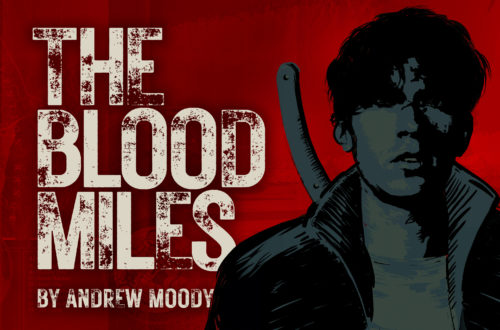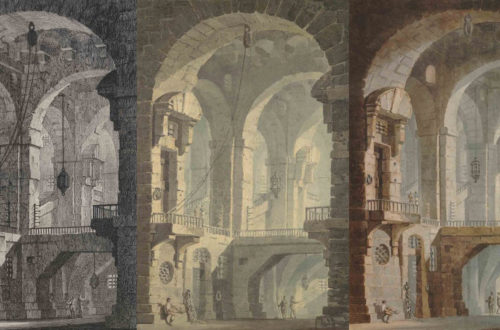
The Storied World: Impassibility, Incarnation & Virtual Reality
In recent months, I have been thinking and writing about the significance of stories, divine impassibility and the incarnation. Here is a post to draw some of those threads together in the light of our Christmas hope. Some of this is an adaptation of a paper I gave up at EV church earlier this month.
Here’s an odd truth to consider. The world we live in is virtual. I don’t mean that it is a mere illusion or a light-show, or that there is another physical reality behind it. I mean that it doesn’t have self-existence. The world is not a series of objects existing alongside God. Rather, God is the only thing that exists, and we all subsist by his will. The world, and space, and angels, and humans, and time are evanescent realities conjured and upheld solely by the word of his power (Heb 1:3).
Heaven and Earth
This virtual cosmos has (at least) two principle levels: heaven and earth. Both are created (Gen 1:1; Neh 9:6). Both are reflections of God’s glory (Ps 19:1; Is 6:3). But they are not the same. Heaven is that part of creation where God reveals himself more directly and personally—the place where his face is seen and his glory shines forth. Heaven is the place where he receives prayers and worship; where he holds counsel with his angelic stewards and gives his orders. It is the place where his will is done. The most holy parts of the earth are but models and shadows of this good place (2 Chron 6:18-21; Heb 8:3-5).
Heaven is still virtual. It doesn’t really contain God. But it is the place he has created for his name and presence. It’s the place where he chooses to appear—as if he were another being-in-space like us creatures.
Plays and Pages
Calvin calls heaven and earth “theatres” for God’s glory [1], which nicely captures the purpose and also (though this is not Calvin’s point) the contingency of our world. The world is an artificial thing that God creates. It is his proscenium, and we are the actors in his show. Willingly or unwillingly, we play our parts and serve the story that he is telling.
The world is an artificial thing that God creates … we are the actors in his show.
C.S. Lewis prefers the analogy of a novel,[2] which helpfully highlights the radical difference between the Author’s world and that which he creates. The characters that live in the book are in an entirely different reality from the person writing them. They don’t share the same time or space; they don’t exist in the same way at all.
In both cases, however, the Author or Playwright may appear in his own work. He may speak his own lines on the stage or from the wings; he may write himself into his own story.
And indeed, this is what he does. As we have already seen, God appears in heaven as if he were an inhabitant of time and space. He interacts with creatures. He speaks and listens. He participates in history and stakes his reputation on its outcome. He works to achieve a conclusion that will vindicate him and all who trust in him.
Again, this is not God in his “native” state—this is God appearing in his cosmos/play/novel. God’s narrative presence is appropriate to the form—it works within the bounds of time, space, cause and effect.
So God is, in one sense, acting. Like a parent playing hide-and-seek with a toddler, he stoops to our level. To use another metaphor from Calvin, he lisps to us like a nursemaid (Institutes 1.13.1).
Two Dangers
Some Christians worry that this robs us of something important. If God doesn’t really learn something new when he listens to our prayers, has he really listened? If God isn’t really grieved by sin or delighted by faith, isn’t it all a bit fake? If he doesn’t really give up something in the surrendering of his Son (c.f. Rom 8:32), doesn’t that cheapen the testimony of his love?
The concern here is appropriate. If God reveals himself in a certain way, we don’t simply want to look past or look through that revelation because our deductions demand a God who is above or beyond all that. That would be a terrible way to approach the Bible and would invest far too much confidence in our rational capacity.
But we also need to be wary of the opposite danger of bringing God down to our level so that we can keep things simple and comprehensible. As we read and consider the Bible we discover a God who is both revealed and beyond our understanding: a God who is both grieved by sin and sovereign over it; who listens to prayers and who ordains all of our words and actions; who relents and who raised up the intercessor; who is both propitiated and the one who provides the sacrifice.
The God who Speaks
Such puzzles might cause us to throw up our hands (possibly a helpful despair for some of us). But our ultimate hope is not that we will be able to wrap our heads around God—either by our reason or exegesis—but that he knows how to speak to us about himself in ways that are fitting and appropriate for our child-minds. We trust that the refracted images of himself that he projects into space and time—that is, the narrative version of himself that appears in our history—is the right one for us.
Our ultimate hope is not that we will be able to wrap our heads around God but that he knows how to speak to us about himself.
That takes the pressure off. It means that we don’t need to wave away those difficult verses about God suffering or changing his mind; but neither do we need to insist that they mean what they would mean for us. Rather, we receive them in trust—understanding them as God describing himself in our language.[3] If God was part of creation, this is what he would look like. If God had a story, this is how it would go.
Which brings us finally, of course, to Christmas. Because in him, God does have a story. In Christ, God’s eternal Son has become part of creation and its story in the fullest sense. The timeless has entered time. The impassible has suffered. The perfect has experienced change. And this paradox is the greatest and truest revelation of God ever seen:
The Word became flesh and made his dwelling among us. We have seen his glory, the glory of the one and only Son, who came from the Father, full of grace and truth. (John 1:14)
Stick with Jesus. Merry Christmas!
[1] See, for example, his commentary on Genesis 1 and Psalm 138
[2] See one use of the analogy in Chapter 3 (“Time and Beyond Time”) of Mere Christianity.
[3] Which is also, we must remember, the language he has given us. God is Creator as well as Revealer: he builds the set before he steps onto the stage; he invents the world that supplies the analogies that he uses to speak to us. This is an important fact to remember when dealing with liberal theology that relativises all God-talk as “metaphor”. Not all metaphors are created equal.



